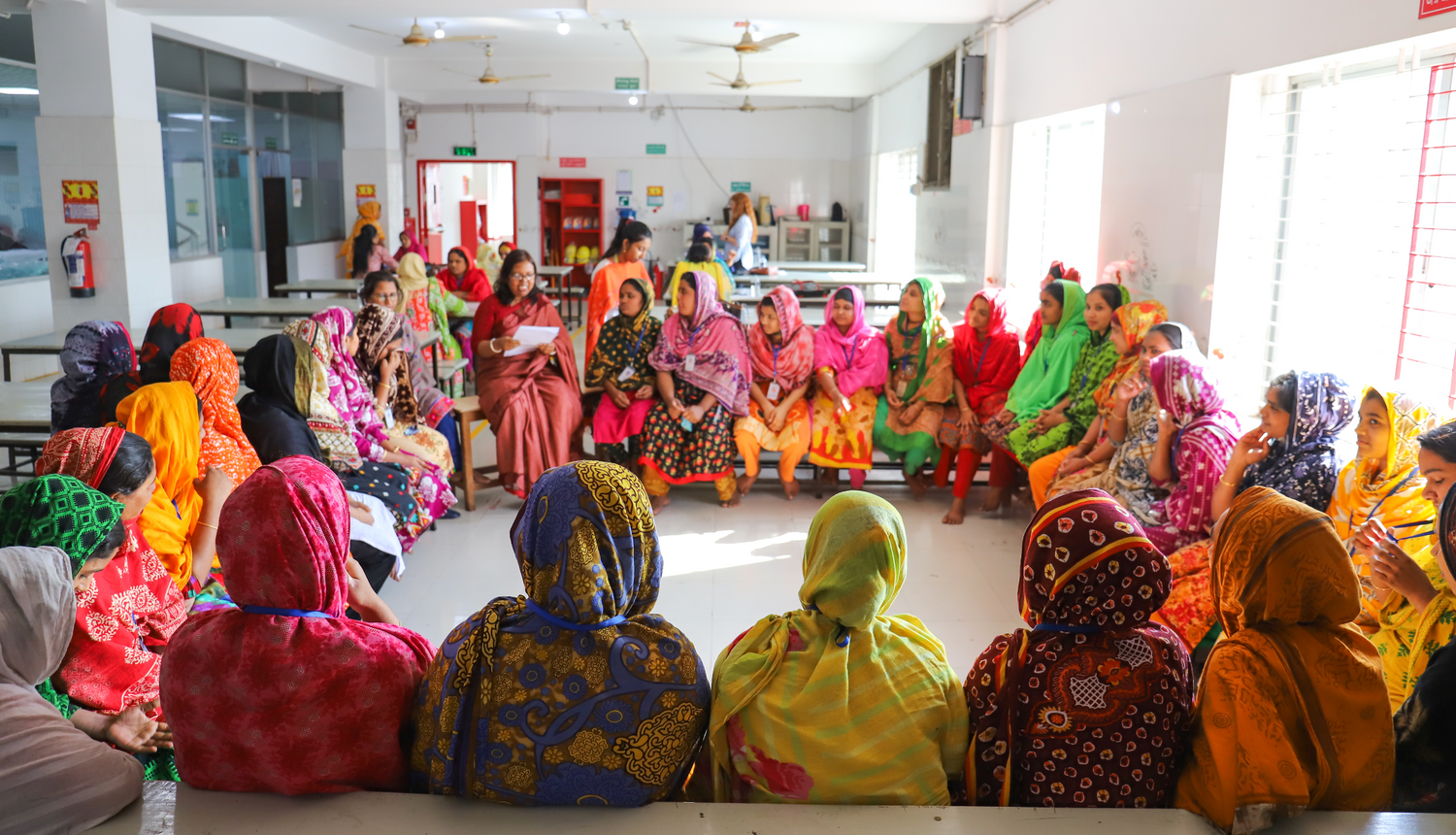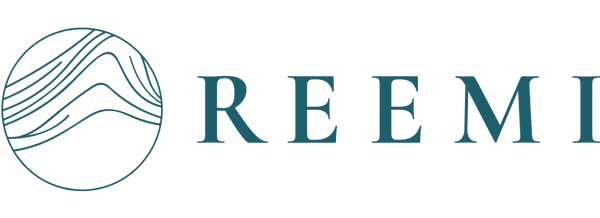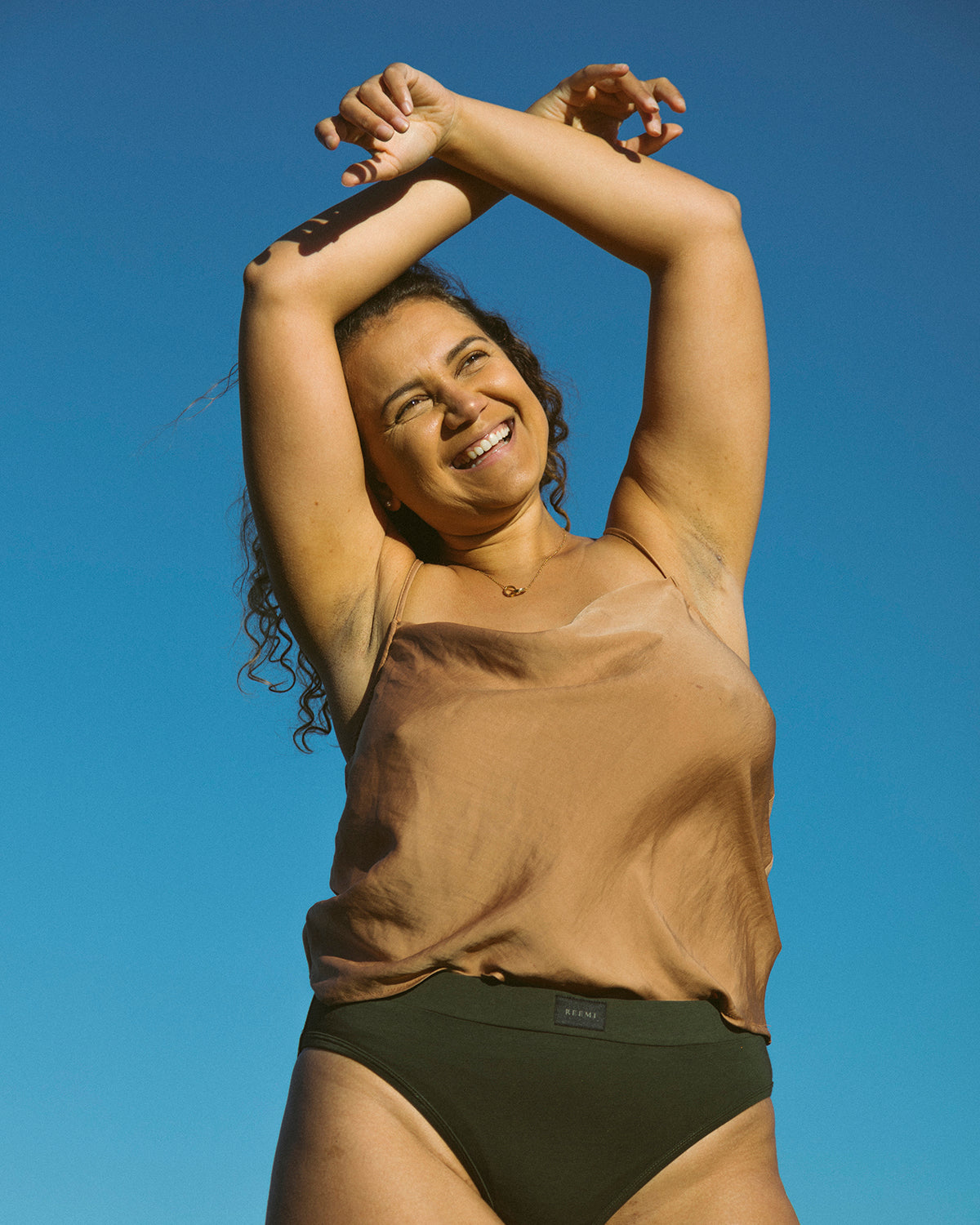Our Vision

We can see the end of global period poverty.
We’re passionate about showing care and hospitality through one of the most stigmatised issues in the world. Since 2017, we’ve been curious about the challenges, curious about the solutions and curious about the impact. We want everyone in the most complex situations to have access to sustainable and desirable period products and education.
We have four long term outcomes that determine our impact:
1) People are confident during their periods and are fully participating in societies - including their families
2) People are physically healthy during their period
3) Strong local partners are the front and centre of our work
4) A positive impact on the environment is created
Why Periods?
For something that happens to approximately half the population for a significant portion of their lives, we’re pretty bad at talking about this thing our bodies do. Finding products that work, that we can afford, and that meet our standards of sustainability isn’t easy. We still sometimes feel like our periods are holding us back from fully participating in all that life offers.We wanted better for ourselves, but we also wanted better for everybody.
For some people around the world, our period woes pale in comparison. Approximately 80-95%* of Bangladeshi women don’t use sanitary products because they are unaffordable or inaccessible. Instead, many women use cloth or torn sari known as ‘nekra’.
One study showed that, due to social stigma, women resort to drying menstrual cloth in secret - often in damp, mouldy and unhygienic places**, like under their bed! And as you can imagine, using unclean cloth has contributed to high rates of vaginal and urinary infections reported across Bangladesh.
Another study reported that 73% of Bangladeshi factory workers missed an average of six days of work per month (resulting in unpaid days) due to infections caused by unhygienic menstrual cloth or rags***.
Taking time off work or skipping school because you have your period isn’t getting anyone ahead, and we’re here to change that. We’re making sustainable, culturally appropriate period solutions accessible to all people everywhere, as well as educating around menstrual health and deconstructing tired taboos.
All across the world, women have been taught to hide their periods, to make sure no one else knows what is happening to us. But this ‘impurity’ is simply a sign of life. Our bodies are just doing their thing.
We want to be part of the conversation around what it means to be both loving and inclusive of menstruating bodies. We want to celebrate the fact that when we are healthy and well, we have our period.
Want to understand more? Why not read this paper we put together for the NZ Government in our application as the first overseas charity singularly focused on period poverty.
1. Ahmed, R., and K. Yasmin. Menstrual hygiene: breaking the silence. Beyond construction: Use by all. A collection of case studies from sanitation and hygiene promotion practitioners in South Asia. London: WaterAid, 2008, 283-287.
2. Ahmed, R., and K. Yasmin. Menstrual hygiene: breaking the silence. Beyond construction: Use by all. A collection of case studies from sanitation and hygiene promotion practitioners in South Asia. London: WaterAid, 2008, 283-287.
3. George, Rose. Celebrating Womanhood: How better menstrual hygiene management is the path to better health, dignity and business. Geneva: Water Supply & Sanitation Collaborative Council, 2013, 10.
Subscribe to our emails
We have some exciting things happening. Sign up here to be part of the journey!



